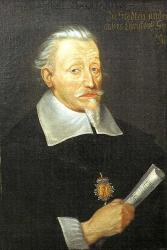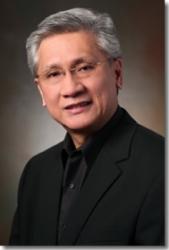Planning worship?
Check out our sister site, ZeteoSearch.org,
for 20+ additional resources related to your search.
- |
User Links
Person Results
‹ Return to hymnal


Export as CSV
Dan Feiten
b. 1953 Hymnal Number: 531 Author of "Seed, Scattered and Sown" in Glory to God As a founding member of EKKLESIA, Dan Feiten was transformed and blessed by a music ministry that has profoundly touched many. His composition, "Seed, Scattered and Sown," has been sung in churches across the continents, including St. Peter’s Square at the Vatican. Other notable songs include: "Let the Heavens Be Glad," "Create in Me," "My Soul Is Thirsting" and "Be Near Me, Lord," and have withstood the test of time as they continue to be prayerfully sung by parish families everywhere. Dan is blessed by his ongoing service in the music ministry of Most Precious Blood Parish in Denver, Colorado.
--www.ilpmusic.org/
Dan Feiten
Christopher Norton
b. 1953 Hymnal Number: 777 Composer of "HOW LONG, O LORD" in Glory to God
Christopher Norton
Heinrich Schütz

1585 - 1672 Hymnal Number: 64 Composer of "WOHL DENEN, DIE DA WANDELN" in Glory to God Heinrich Schütz (baptized Oct. 9, 1585-1672) was the greatest German composer of the seventeenth century and the first to reach international prominence. His influence was felt for more than two centuries after his death.
In 1598, after hearing the young Henrich sing, the Landgrave Moritz of Hessen-Kassel began a campaign to have the boy study at Kassel. In 1599, Christoph Schütz took his son to the landgrave’s seat, where he served as a choirboy and pursued his education showing particular facility in Greek, Latin, and Frence. After he lost his treble voice, he set out for the University of Marburg, where he studied law. But under the sponsorship of the landgrave, Heinrich went to Venice (1609) and studied with Giovanni Gabrieli until Gabrieli’s death in 1612. In 1613 he returned to Germany, once again studying law while serving as organist to the landgrave. He was lent to Johann Georg I of Saxony (1614) and subsequently became director of the chapel, a position he held the rest of his life. The untimely death of his wife after six years of marriage (1625) led him to devote himself to the composition of church music. After several petitions Schütz was granted leave to study with Claudio Monteverdi and once again set out for Venice. For much of his life the Thirty Years’ War obstructed his work, and he spent time moving from court to court in Europe, finally settling in Dresden in 1641, where he died.
--The Presbyterian Hymnal Companion, 1993
Heinrich Schütz
Elkanah Kelsay Dare
1782 - 1826 Hymnal Number: 256 Composer (attributed to) of "KEDRON" in Glory to God Elkanah Kelsey Dare (1782-1826) was born in New Jersey but moved to Lancaster County, Pennsylvania sometime before 1818. He was a Methodist [sic Presbyterian] minister and very possibly the music editor for John Wyeth’s Repository of Sacred Music, Part Second (1813), a shaped-note collection that includes more than a dozen of his tunes.
Emily Brink
Elkanah Kelsay Dare
Joel Navarro

b. 1955 Hymnal Number: 131 Arranger of "KALINGA" in Glory to God Joel Navarro (b. 1955) is a professor of music at Singapore Bible College. Until 2014 he taught at Calvin College in Grand Rapids, Michigan, teaching conducting and directing campus choirs. As the recipient of numerous awards in performance and education in his native Philippines, he is widely known as a conductor, educator, clinician, lecturer, writer, singer, recording artist, composer, arranger, stage actor, record producer, and music consultant. An active performer of music from different eras and ethnic traditions, he takes an ardent interest in post modern music and the music traditions and liturgies of the world.
Navarro earned a master of music degree in choral conducting from the University of the Philippines and a doctor of musical arts degree in conducting at Michigan State University. He is known internationally as the former music director and conductor of the Ateneo de Manila University Glee Club, which has amassed a string of top prizes during the past 20 years in choral competitions worldwide. He also was a member of the 12 member editorial team for Lift Up Your Hearts.
Lift Up Your Hearts (https://liftupyourheartshymnal.org/)
Joel Navarro
George Henry Day
1883 - 1966 Hymnal Number: 190 Composer of "GENEVA" in Glory to God George Henry Day (1883-1966) was a choirboy at Trinity Chapel, New York City, where he studied with G. Edward Stubbs. Day was appointed choirmaster at St. Peter’s in Chelsea Square (1911) but maintained his position as an assistant auditor of the Gorham Manufacturing Company for two more years. He resigned as assistant auditor, took special courses at Columbia University, and in 1915 graduated from New York College of Music. He served as organist and choirmaster in churches in Youngstown, Ohio; Wilmington, Delaware, where he studied with Edward Shippen Barnes; and Rochester, New York, before going to Trinity Church. He was awarded a Doctor of Music degree from Lincoln-Jefferson University (1923).
--The Presbyterian Hymnal Companion, 1993
George Henry Day
J. Troutbeck
1832 - 1899 Person Name: John Troutbeck Hymnal Number: 130 Translator of "Break Forth, O Beauteous Heavenly Light" in Glory to God Troutbeck, John, D.D., son. of George Troutbeck, of Dacre, Cumberland, b. Nov. 12, 1832, and educated at Rugby and Univ. College, Oxford, B.A. 1856, M.A. 1858, and D.D. by Abp. of Cant. 1883. Ordained in 1855. He held several appointments, the most important being Chaplain and Priest in Ordinary to the Queen, Minor Canon of Westminster, 1869, and Sec. to the N. Test. Revision Company, 1870-1881. He died Oct. 11, 1899. He made a few translations from the German, but is best known through his Manchester Psalter and Chant Book, 1867, and his Catholic Paragraph Psalter, 1894. He also compiled the Westminster Abbey Hymn Book, 1883.
--John Julian, Dictionary of Hymnology, New Supplement (1907)
J. Troutbeck
Francisco F. Feliciano
1941 - 2014 Hymnal Number: 195 Composer of "DAPIT HAPON" in Glory to God
Francisco F. Feliciano
Arthur Hutchings
1906 - 1989 Hymnal Number: 844 Harmonizer of "DANBY" in Glory to God Arthur James Bramwell Hutchings (1906–1989) was an English musicologist, composer, and professor of music at the University of Durham, England. He wrote extensively on topics as varied as nineteenth-century English liturgical composition, Schubert, Purcell, Edmund Rubbra, and baroque concertos; but his most famous book was the Companion to Mozart's Piano Concertos, published in 1948 and often reissued since. Among his other books are The Invention and Composition of Music and Church Music in the Nineteenth Century. During the late 1970s his articles on music regularly appeared in the monthly magazine Records and Recording. His compositions include the Seasonal Preludes for organ, the overture Oriana Triumphans, the opera Marriage à la Mode, and the operetta The Plumber's Arms. Among his choral works are Hosanna to the Son of David, God is Gone Up, Grant Them Rest, and the Communion Service on Russian Themes. Professor Hutchings served for many years as a Director of the English Hymnal Company and a number of his tunes were included in the 1986 New English Hymnal.
--en.wikipedia.org/wiki/
Arthur Hutchings
John Henry Hopkins
1861 - 1945 Hymnal Number: 730 Composer of "GRAND ISLE" in Glory to God John Henry Hopkins, born in Vermont, he was ordained as a priest in the Episcopal Church in 1891. He served mostly in the Chicago diocese. He died in Grand Isle, Vermont.
Dianne Shapiro from The Great Forty Years: in the Diocese of Chicago A.D. 1893 to 1934 (The Centenary Fund of the Diocese of Chicago, Inc.: 1936 and Find a Grave website (https://www.findagrave.com/memorial/33095210/john-henry-hopkins) (accessed 5/22/2024)
John Henry Hopkins


 My Starred Hymns
My Starred Hymns

